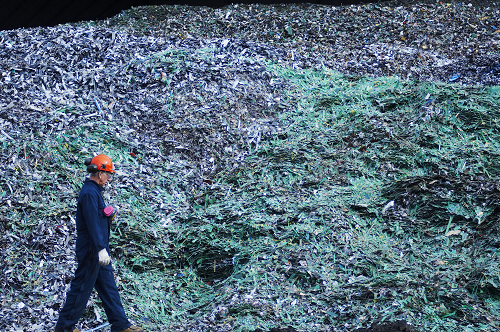
The world may have to rely on new recycling technologies to prevent shortages of copper as the shift toward clean energy supercharges demand for the wiring metal, according to a new report by BloombergNEF.
Annual copper demand is set to expand 53% to 2040, mainly driven by the electrification of transport and infrastructure, BNEF analysts including Sung Choi wrote in the report released Tuesday. In the same span, BNEF’s base case has supply up just 16% amid a dearth of new mines, leaving a shortfall of 14 million metric tons by 2040. Even in a best-case scenario, a shortage of more than 5 million tons is possible.
The BNEF report is the latest alarm bell for a looming squeeze in the building blocks for the new economy, with key battery components like lithium and nickel also likely to be in short supply. Last month, S&P Global warned of “untenable” copper shortfalls in the coming decade as new deposits become trickier and pricier to develop and current mines face falling ore quality and rising environmental and social demands.
To be sure, big deficits are hypothetical, with higher prices potentially flushing out new supply or slowing the move away from fossil fuels. While stable rules and streamlined permitting will help ensure new projects are completed on time, mining challenges mean the focus shifts to secondary production, with a jump in recycling projected to help fill the gap.
Related: EPA funding for battery recycling ‘part of the piece’ in handling of scrap metals, says CEO
“Investing in technologies related to recycling, lowering costs and improving recovery rates from low-grade deposits could help bring new copper supply online to meet growing demand,” the BNEF analysts wrote.
While copper futures have recovered ground in recent weeks, they’re still down about 18% from an early-June peak amid lingering recession fears. A downturn probably will delay copper demand growth, but it also has the potential to boost investment in supply post-recession, BNEF wrote.
(By James Attwood)
Comments